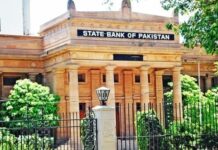ISLAMABAD: Amid increasing concerns about food insecurity, there have been vociferous calls to integrate digital technologies into agriculture data to harness Pakistan’s agricultural potential.
“With a population exceeding 220 million, a significant portion of whom depend on agriculture for their livelihoods, Pakistan faces unique challenges in ensuring food security. However, advancements in digital technologies can pave the way for unprecedented solutions,” said M Azeem Tariq, a senior scientific officer at the National Agriculture Research Centre (NARC).
“Amid traditional agricultural practices, the integration of digital tools and platforms is necessary for enhancing efficiency, productivity and resilience within the food supply chain. From farm to fork, it is necessary to embrace innovative technologies to address longstanding issues such as yield optimisation, supply chain management, and market access,” he told media.
“One notable aspect of this digital transformation is the widespread adoption of precision agriculture techniques. Farmers are now able to use data-driven insights from remote sensing, drones and IoT (Internet of Things) devices to monitor soil health, optimise irrigation schedules, and apply fertilisers and pesticides precisely. This targeted approach not only maximises crop yields but also minimises resource wastage, which plays a crucial role in promoting sustainable agricultural practices.”
He said digital technologies could help improve Pakistan’s food system, “but we need to be careful about how we approach this change.” A big concern, he said, was that not everyone had access to technology and the Internet in rural areas. “This means that some farmers might be left behind if we don’t provide enough infrastructure and digital literacy programmes. This could make existing inequalities even more severe.”
So, he said it was necessary to make sure that everyone benefited from digital innovation, especially small farmers.
“The integration of digital technologies holds immense potential in addressing the complex challenge of ensuring food security in Pakistan,” he maintained.
Azeem Tariq said that digital platforms were necessary to revolutionise market access for farmers, particularly smallholders. “Mobile apps and online marketplaces connect farmers directly with consumers, eliminating intermediaries and ensuring fair prices for their produce.”
“Additionally, these platforms provide valuable market information, enabling farmers to make informed decisions regarding crop selection and pricing strategies.”
The NARC scientist said while the digital transformation of Pakistan’s food system was undoubtedly a step in the right direction, the country must be cautious of the potential environmental effects. “By maintaining a balance between technology-driven solutions and environmental stewardship, Pakistan can build a resilient and regenerative food system that nourishes both people and the planet.”
Meanwhile, Sustainable Development Policy Institute’s Joint Executive Director Vaqar Ahmed, while quoting a report titled “Potential of Innovation for Food Security and Regional Trade in Agriculture” that the think-tank launched recently, said that recurrent climate events, pandemics and supply chain disruptions had caused food price inflation shocks and exacerbated food insecurity in Pakistan and across the region.
“Considering these novel challenges, agricultural productivity and regional food security can be leveraged by technological innovations and strengthening regional agricultural trade,” he said.
He highlighted that the 2022 floods severely undermined the ability of 73% of households in flood-hit areas to afford basic nutrition, stalling the progress towards Sustainable Development Goal No 2 (SDG2). –INP





